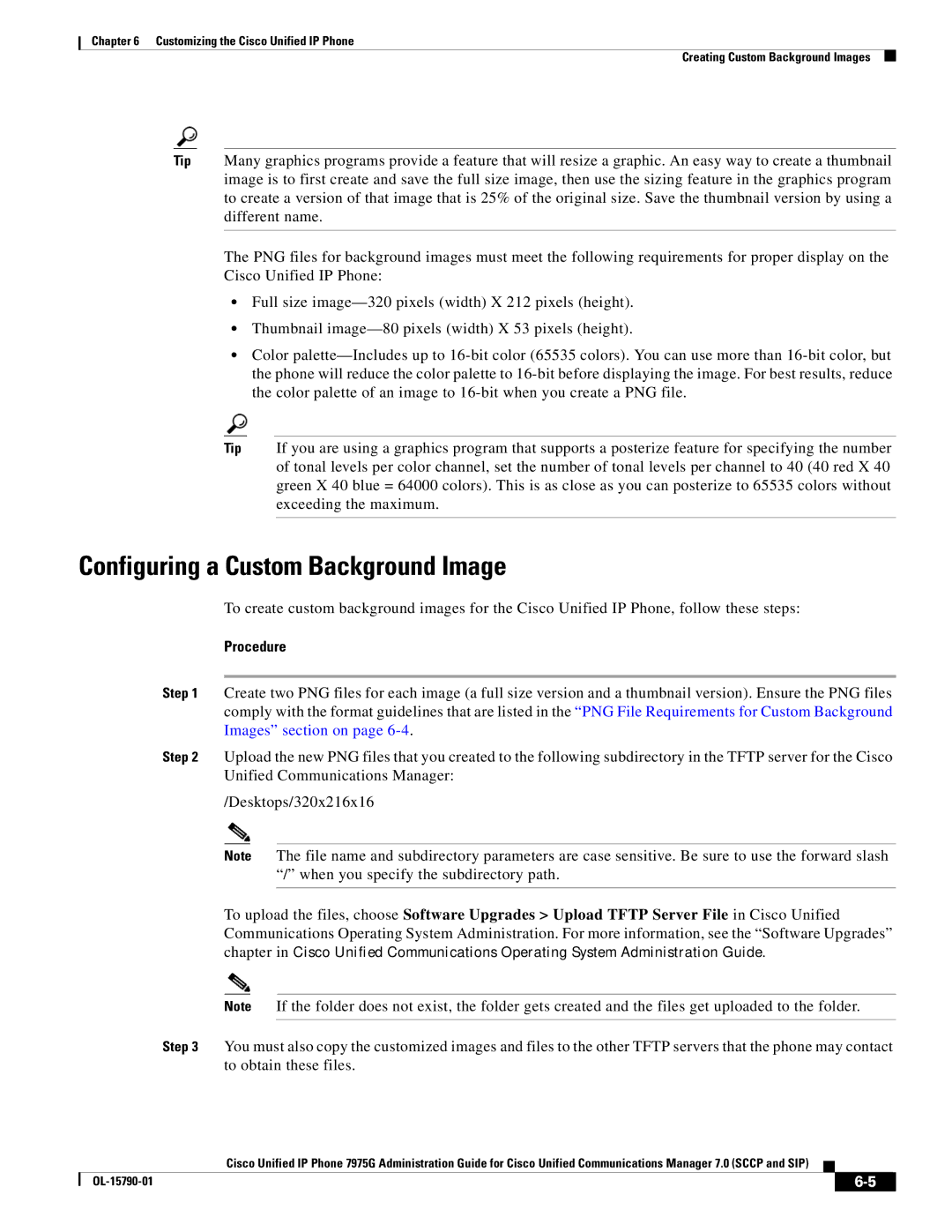
Chapter 6 Customizing the Cisco Unified IP Phone
Creating Custom Background Images
Tip Many graphics programs provide a feature that will resize a graphic. An easy way to create a thumbnail image is to first create and save the full size image, then use the sizing feature in the graphics program to create a version of that image that is 25% of the original size. Save the thumbnail version by using a different name.
The PNG files for background images must meet the following requirements for proper display on the Cisco Unified IP Phone:
•Full size
•Thumbnail
•Color
Tip If you are using a graphics program that supports a posterize feature for specifying the number of tonal levels per color channel, set the number of tonal levels per channel to 40 (40 red X 40 green X 40 blue = 64000 colors). This is as close as you can posterize to 65535 colors without exceeding the maximum.
Configuring a Custom Background Image
To create custom background images for the Cisco Unified IP Phone, follow these steps:
Procedure
Step 1 Create two PNG files for each image (a full size version and a thumbnail version). Ensure the PNG files comply with the format guidelines that are listed in the “PNG File Requirements for Custom Background Images” section on page
Step 2 Upload the new PNG files that you created to the following subdirectory in the TFTP server for the Cisco Unified Communications Manager:
/Desktops/320x216x16
Note The file name and subdirectory parameters are case sensitive. Be sure to use the forward slash “/” when you specify the subdirectory path.
To upload the files, choose Software Upgrades > Upload TFTP Server File in Cisco Unified Communications Operating System Administration. For more information, see the “Software Upgrades” chapter in Cisco Unified Communications Operating System Administration Guide.
Note If the folder does not exist, the folder gets created and the files get uploaded to the folder.
Step 3 You must also copy the customized images and files to the other TFTP servers that the phone may contact to obtain these files.
Cisco Unified IP Phone 7975G Administration Guide for Cisco Unified Communications Manager 7.0 (SCCP and SIP)
|
| ||
|
|
